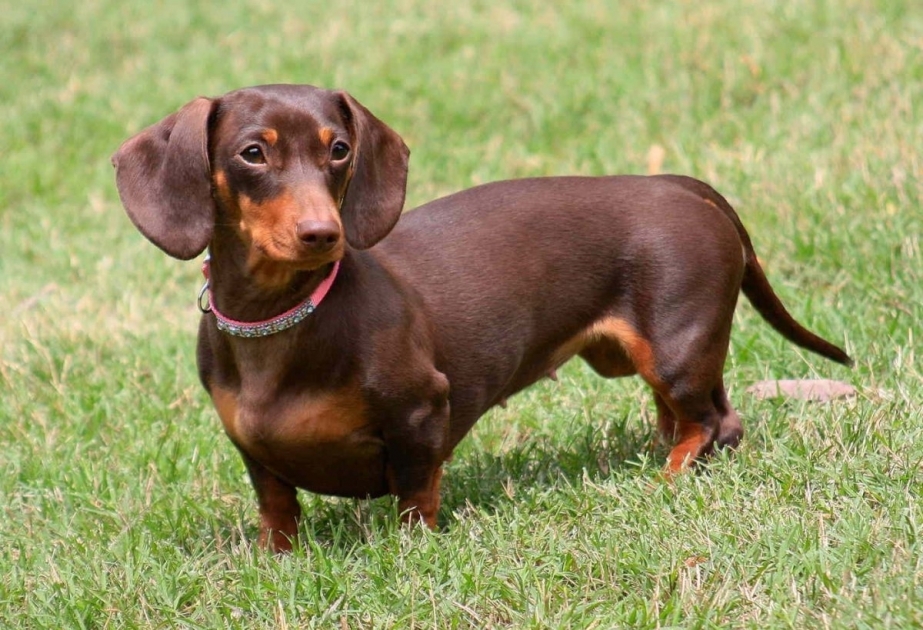WORLD
Sausage dogs are here to stay! Germany denies it's planning to ban dachshunds
30.03.2024 [14:24]
A+ A-
Baku, March 30, AZERTAC
German dog lovers were in uproar this week, as it was revealed the country was considering banning the breeding of dachshunds, according to DailyMail.
The proposal, revealed in a draft of Germany's Animal Protection Act, addresses concerns their short legs and elongated spines make them more vulnerable to back issues.
The German Kennel Club (VDH) – the primary organisation representing the interests of dog owners in the country – launched a petition to save 'our favourite dogs'.
But according to Germany's agriculture ministry, the ban on breeding dachshunds - also known as sausage dogs - won't happen.
'No dog breeds will be banned,' a spokesperson told the BBC.
The ministry's spokesperson added that there 'will always be sausage dogs' in Germany, where the modern version of the breed originated in the 17th century.
'We want to prevent breeders from deforming dogs so much that they suffer,' they added.
MailOnline has contacted VDH and Germany's agriculture ministry for further comment.
The saga goes back to earlier this week, when an article was published by Germany newspaper Hochrhein–Zeitung.
The article, written by a spokesperson for the VDH, raised concerns with a new draft of the country's Animal Protection Act.
The Act, the spokesperson said, proposes a ban on 'cruel' breeding of dogs that have 'skeletal anomalies' because they live in pain.
Short-legged dogs such as Beagles, Jack Russell Terriers, and Shelties could also be banned from breeding under the law, it said.
VDH also launched a petition calling for changes to the wording of the Act before it's enforced.
'The [Animal Protection Act] draft lists various disease characteristics that lead to a ban on breeding dogs,' VDH's petition reads.
'Unfortunately, many of the characteristics mentioned are vague and ambiguous.
'This leaves a lot of room for interpretation, which carries the risk of incorrect or exaggerated interpretations and will lead to great legal uncertainty among law enforcement authorities, veterinarians, breeders and dog owners.'
Dr Eniko Kubinyi, a Hungarian biologist studying dog behaviour at Eotvos Lorand University in Budapest, said dachshunds are 'deeply ingrained in German culture'.
'Rather than imposing a ban, it would be better to implement stricter regulations on breeding practices, including compulsory health screenings, to ensure the health of the dogs,' she told MailOnline.
'It is equally important to educate prospective dog owners about the potential health issues of dachshunds to ensure they are prepared for responsible ownership.'
For hundreds of years, dachshunds – also known as sausage dogs – have been bred to accentuate harmful features, like a long, sausage-like torso, to make them appear 'cute'.
Unfortunately, they suffer severe back problems due to their long spine and bowed, stubby legs, potentially leaving them unable to walk.
Dachshunds are also prone to problems with their legs, joint issues, and achondroplastic related pathologies, PRA – an inherited eye condition.
'Dachshunds (are also known as sausage dogs) are a breed that are characterised by disproportionately long backs compared to their short legs,' said Paul Manktelow, chief vet at Blue Cross.
'While they often have lovely personalities and cute looks, they can suffer from health problems due to the body shape.
'Their long backs make them prone to intervertebral disc disease (slipped discs), which can lead to back pain, spinal cord damage, problems walking and paralysis.
'While there are often treatments or surgeries to help, a dog may need to be put to sleep due to the severity of their disease.'
But Dr Dan O'Neill, professor of animal epidemiology at Royal Veterinary College, says health issues are not unique to the dachshund.


















